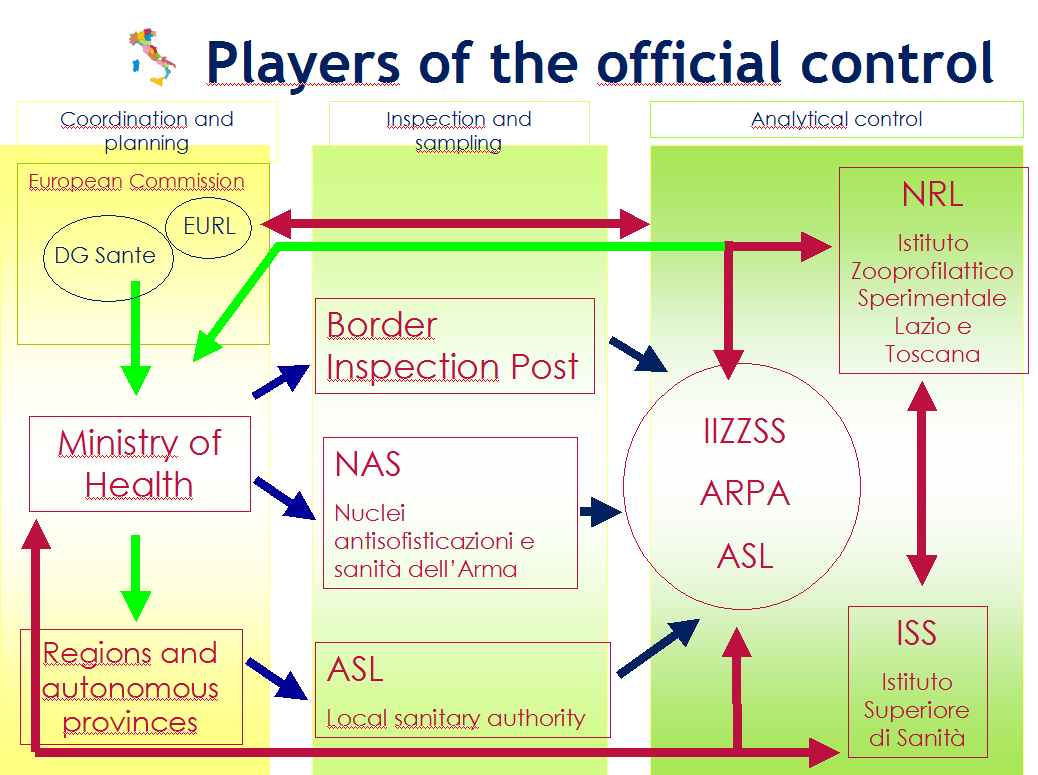The official control of GM food and feed in Italy
Regulation (EU) 2017/625 that modifies Regulation (EC) 882/2004, on official controls performed to ensure the verification of compliance with feed and food law, animal health and animal welfare rules, in application since December the 14th 2019, has introduced important provisions for the coordination, the execution and reporting of control activities in food and feed sector. It has also defined the role of Community and National Reference Laboratories.
Within this legal framework, which has been considerably evolved and harmonized over time, the organisation of official controls in Italy involves several players having specific roles (fig. 1):
Fig 1. Public Bodies involved in GM food and feed official control in Italy
Coordination and planning at national level is up to the Ministry of Health, and up to Regions and Autonomous Provinces at local level; Inspection activities and sampling are carried out by the Border Inspection Posts (USMAF and PIF) at import, and by Local Sanitary Authorities (ASL) on the territory.
First instance analyses are performed by the IZS, some ARPA and some ASL as provided for by the regional competent authorities.
Counteranalyses, Possibly required in case of non-compliance found in the first instance, are up to the Istituto Superiore di Sanità (ISS).
The National Reference Centre for GMO Analysis (CROGM), also appointed as National Reference Laboratory for GM Food and Feed, has to coordinate the analytical activities of the official control laboratories, to provide technical and scientific support to the other players of the official control, to assist competent authorities for the preparation and implementation of coordinated control plans, to collaborate with the European Union Reference Laboratory, to provide training, information and updating.


